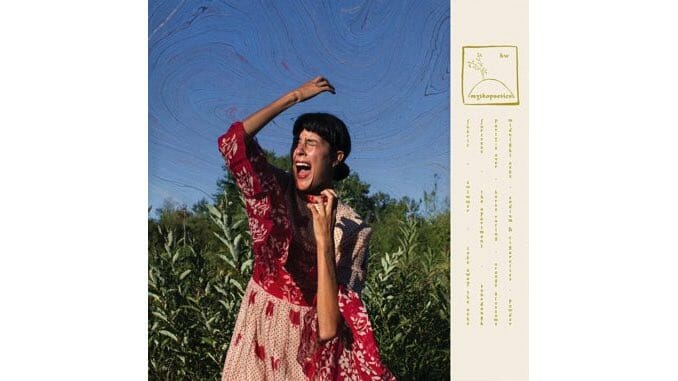Introducing Endless Mode: A New Games & Anime Site from Paste
When Nandi Rose released The Caretaker last year under her alias, Half Waif, it felt like a pithy encapsulation of its moment. It came out during the first month of lockdown, a time when we were beginning to reckon with our own self-doubt that we had previously been able to avoid when surrounded by large groups of people. The Caretaker reflected its environment and solitude, and the New-York-based synth-pop artist made a striking statement on healing and confronting our deepest insecurities.
On her fifth record as Half Waif, Mythopoetics, Rose performs her artistic hat trick. Not that much time has passed since her 2018 breakthrough, Lavender, and much less time has elapsed since last year’s The Caretaker. Nevertheless, she has proven herself a formidable force. Rose is consistently productive, but the quality of her music has never wavered; it has only blossomed. It’s rare for an artist with this much creative output to be this consistently excellent, and the streaming industrial complex has only incentivized quantity over quality. Rose, however, is on a streak, and she continues that thread with Mythopoetics.
She’s once again reunited with her frequent collaborator since Probable Depths, film score composer and producer Zubin Hensler. The duo worked together on Lavender, and the melancholia that permeated that record resurfaces on Mythopoetics, albeit in a different form. Where Lavender felt despondent, especially on tracks such as “Lavender Burning” and “Back in Brooklyn,” Mythopoetics imbues that loneliness with a sense of triumph. This album finds Rose at her most revelatory with swooning, resplendent compositions like “Midnight Asks” and the stunning closer, “Powder.”
What makes Half Waif’s music so compelling is that she is equally as talented a writer as she is a musician and producer. In “Fortress,” quiet synth chords gradually give way to brisk, tempestuous percussion, suggesting an epiphany in real time. Almost by contrast, “Sourdough” is a piano ballad that basks in its ruminative stillness. This sensation of overcoming self-doubt appears in Mythopoetics’ lyrics, too. “Nobody’s gonna do it my way,” Rose exclaims, reverting to a hush mere moments later: “So I walk through the dawn, and I don’t look back anymore.” On the penultimate ballad, “Sodium & Cigarettes,” she realizes that she can pave her own path (“I made a bed, now I lie in it / No one’s gonna do it for me”). She echoes this sentiment in the single’s press release, saying “this song is really a quiet encouragement for me, a way to tell myself to stop running, to face what’s coming with clarity and vision and courage, to know there’s another tomorrow.”
But just as Rose acknowledges that she can heal herself, she also understands how she can become her own obstacle toward fulfillment. She embraces her autonomy while recognizing her struggles, achieving a balance between realism and self-belief. “Somebody see that I don’t get in my own way / Somebody hold my head up” she implores on “Orange Blossoms.” Though this could be interpreted as despair, her buoyant vocals evoke feelings of reassurance, the recognition that it’s OK to seek help from others. Over soft synths and hazy backing vocals, this track explores the notion that burdening yourself with complete emotional responsibility is exhausting. Finding solace in community and companionship is necessary for even the most secluded of introverts.
Following the tranquil opener, “Fabric,” Rose infuses its successor, “Swimmer,” with contrasting urgency. Through coursing electronic percussion and fluttering, arpeggiated synths, she asserts that she’s far from finished, as Mythopoetics marks another pivotal step in her artistic evolution. Although Half Waif has never drastically changed her sound, she has continually refined it with each new entry in her catalogue. “I wanted to sing for you, so I’m gonna sing for you,” Rose declares on “Swimmer.” “I hope you’re listening to me wherever you are.” With a record as authentically beautiful as Mythopoetics, we should be.
Grant Sharples is a writer based in Kansas City. He has contributed to MTV News, Stereogum, The Ringer, SPIN, and others. Follow him on Twitter @grantsharpies.
